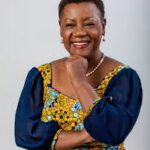RENEE CHIKWANDA
EARLIER this year, local reports raised concerns after revealing that over 9, 000 married couples in Lusaka alone had divorced since January 2024. This figure is particularly alarming when compared to the 36, 000 divorce cases recorded across the nation in the entire 2023.
Psychologists explain that marriage tends to be most vulnerable after 5-7 years. The initial “honeymoon” phase typically fades within the first 1–2 years, as couples begin adjusting to the realities of everyday life.
Things once overlooked – like job stress, fatigue, messy habits, or household chores – become more noticeable and, often, more irritating.
As children enter the picture and responsibilities grow, pressure increases. This period, often called the “Adjustment Stage,” spans from around 3-10 years into a marriage, marked by fatigue, conflict, and the challenge of balancing work, parenting, and partnership.
While some couples navigate this phase with the support of each other or extended family, many find communication and compromise harder to sustain.
Today, most Zambians marry in their 30s. As more people prioritise education, career growth, and financial security, many choose to start families later in life – often in their late 30s.
However, by the time their children begin school, the marriage has typically reached the critical 5–7-year point, a period when cracks in the relationship often start to appear.
For many women, this stage also overlaps with the early symptoms of peri-menopause, typically between ages 35 and 40. Fatigue, brain fog, mood swings, weight gain, and heart palpitations often go unnoticed or are blamed on a busy lifestyle.
Men, unaware of these subtle changes, may misinterpret their partner’s withdrawal or low energy. By the time menopause sets in – between 45 and 55 – the physical and emotional toll becomes more pronounced. Declining hormone levels trigger hot flashes, sleep disturbances, mood shifts, and decreased libido.
Meanwhile, their male partners often remain sexually active, leading to emotional distance and, in some cases, infidelity.
What’s often labelled a “midlife crisis” may perhaps be a biological and emotional crossroads that affects both genders – just in different ways.
Women may face health issues like high blood pressure, anxiety, and insomnia, while men, often consumed by career demands, seek peace at home only to find conflict and disconnection. Both feel misunderstood.
Is there hope? Absolutely. A strong emotional bond built on friendship, trust, and communication during the early stages of a relationship can make a significant difference.
Couples who marry their friends, confidantes and true companions are better equipped to navigate life’s inevitable rough patches. While there are many reasons marriages break down, menopause remains a silent factor too often overlooked.
So, perhaps what we call a “middle-age crisis” is something deeper, more complex – and more human.
.The author is an educator, counsellor and social advisor
Email your comments to: renee.chikwanda@gmail.com











